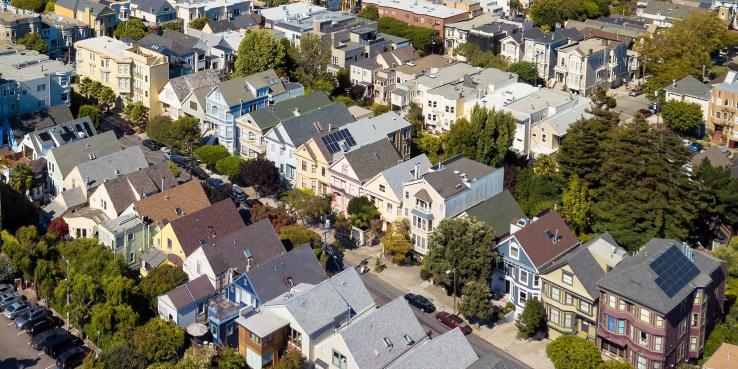Governor Jerry Brown and California’s legislative leadership are expected to unveil a package of housing bills this week in response to widespread recognition that the state faces a significant housing shortage and a resulting affordability crisis. New housing construction in California has not kept up with a growing population, and the consequences are becoming dire: ever-higher rents and home prices, homelessness, displacement of existing residents, longer commutes and overcrowding, as well as growing pressures on employers and impacts on the economy.
As a result, state legislators have by some counts proposed more than 130 housing-related bills this session. In the middle of July, the governor and legislative leadership announced that they would work on a package of housing bills to put before the legislature this fall. Bills must be passed before September 15 in order to go before the governor this year.
The announcement explicitly specified a general obligation bond, a permanent funding source for affordable housing and regulatory reforms, but more proposals are supposedly under discussion. The major bills currently on the table include:
- SB 2 (Atkins), the “Building Homes and Jobs Act,” would levy a $75 fee on real estate documents like mortgage refinancings but would exempt documents related to the sale of residential and commercial property. The funds (estimated to be $250 million annually) would be set aside as a permanent and ongoing state funding source for affordable housing. Changes made just this week allocate the funds more heavily to cities and counties rather than the state.
- SB 3 (Beall), the “Affordable Housing Bond Act of 2018,” is a $4 billion general obligation bond for affordable housing. The funding would be distributed to several existing housing programs that assist low-income multifamily housing, transit-oriented development and infill infrastructure, downpayment assistance, farmworker housing, affordable homeownership and innovative pilot programs. Negotiations this week resulted in an increase to the bond — from $3 billion to $4 billion. The additional $1 billion would go to an existing veterans’ home loan program.
- SB 35 (Wiener) would create a streamlined process for multifamily infill housing projects that have affordable units, pay prevailing wages and are in jurisdictions that are not meeting their housing targets. SB 35 seeks to ensure all local jurisdictions play their part in solving the housing shortage by making it more difficult for cities to deny housing that meets certain requirements.
Other significant housing bills that may be part of the package include a bill that would clarify cities’ ability to require that developers provide onsite affordable housing as part of a multifamily project, a bill that strengthens the existing Housing Accountability Act and several bills that incentivize cities to create a streamlined planning process for certain types of multifamily projects.
Whether the package has the votes to pass or not is still up in the air. While there seems to be general agreement on the affordable housing bond, Senator Wiener’s streamlining bill has been the focus of controversy all year. And after the recent passage of the gas tax increase and an increase to vehicle registration fees, some are concerned about voting for a new recording fee.
Core to SPUR’s Agenda for Change is the belief that we must both invest deeply in subsidized affordable housing and make it easier to build new market-rate housing in order to relieve pressure on the existing housing stock. Subsidy alone cannot address a crisis of this breadth and depth, and our challenge is complicated by how California’s land use decisions are made and incentivized. Local control and state tax policy do not make it easy for cities to choose housing over jobs — or over the objections of residents who do not wish to see change in their community. State level reforms are needed to ensure that jurisdictions across California will do their part to zone for, approve and permit much-needed housing as well as jobs.
SPUR strongly supports the passage of a major housing package this session that would address the demand for more new housing overall and provide additional funding sources to subsidize housing for those with the greatest need. A housing package that includes the bills mentioned above will take a crucial first step toward addressing the spectrum of needs our state faces. More work is still needed, so we hope to see continued engagement from state leadership in the next legislative session.
For now, the status of the housing package is changing day by day. We’re eager to see how the details come together over the next few weeks.
